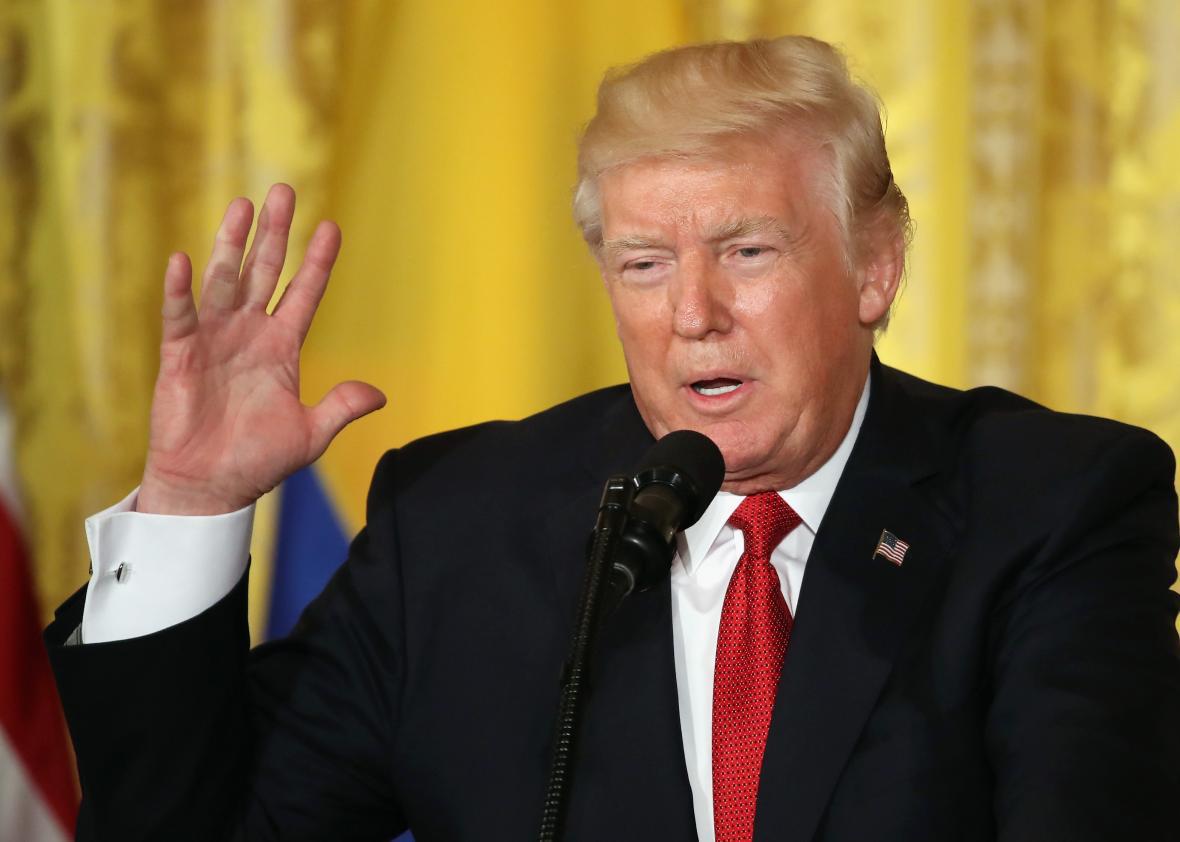On Thursday, the 4th U.S. Circuit Court of Appeals upheld a district court’s nationwide injunction against President Donald Trump’s second travel ban by a 10–3 vote. The decision ensures that individuals from the six Muslim-majority countries targeted by the ban will continue to be allowed into the United States. Like the district court, the 4th Circuit found that the travel ban discriminates against Muslims in violation of the First Amendment’s Establishment Clause.
In his majority opinion, Chief Judge Roger Gregory wrote that the travel ban “drips with religious intolerance, animus, and discrimination,” thereby violating “one of our most cherished founding principles—that government shall not establish any religious orthodoxy, or favor or disfavor one religion over another.” While Gregory acknowledged that “Congress granted the President broad power to deny entry to aliens,” he insisted that this power “cannot go unchecked when, as here, the President wields it through an executive edict that stands to cause irreparable harm to individuals across this nation.”
That harm, Gregory explained, includes not only the separation of myriad Muslim families, but also the “marginalization and exclusion” of Muslims across the country. In court, the Trump administration has asserted that anti-Muslim animus did not motivate either of the president’s travel bans. Judges, lacking expertise in national security issues, also typically defer to the decisions of the political branches in the realm of immigration. But, Gregory noted, courts may closely scrutinize immigration actions if their justifications seem designed to disguise illegality. Examining all of the now-familiar evidence—Trump’s anti-Muslim statements, his proposal for a literal Muslim ban, “his subsequent explanation that he would effectuate this ban by targeting ‘territories’ instead of Muslims directly”—Gregory declared that “the government’s national security purpose was proffered in bad faith.”
Because the executive order was issued in bad faith, the court proceeded to analyze its constitutionality under longstanding Establishment Clause precedent. Deploying the well-known Lemon test, the court asked whether the order “has a secular legislative purpose” that “neither advances nor inhibits religion” and “does not foster an excessive government entanglement with religion.” In performing the test, the court acts as an objective “reasonable observer,” examining all evidence “without any judicial psychoanalysis.”
Gregory first held that “the evidence in the record” creates “a compelling case” that the second travel ban’s “primary purpose is religious.” To make his case, Gregory laid out Trump’s history of anti-Muslim statements on the campaign trail. “These statements,” he wrote, “taken together, provide direct, specific evidence of what motivated both [executive orders]: President Trump’s desire to exclude Muslims from the United States.” He continued:
The statements also reveal President Trump’s intended means of effectuating the ban: by targeting majority-Muslim nations instead of Muslims explicitly. And after courts enjoined [the first travel ban], the statements show how President Trump attempted to preserve its core mission: by issuing [the second travel ban]—a “watered down” version with “the same basic policy outcomes.” … They are explicit statements of purpose and are attributable either to President Trump directly or to his advisors. We need not probe anyone’s heart of hearts to discover the purpose of [the second travel ban], for President Trump and his aides have explained it on numerous occasions and in no uncertain terms.
The government, Gregory wrote, asked the court “to ignore evidence, circumscribe our own review, and blindly defer to executive action, all in the name of the Constitution’s separation of powers.” But, he asserted:
We decline to do so, not only because it is the particular province of the judicial branch to say what the law is, but also because we would do a disservice to our constitutional structure were we to let its mere invocation silence the call for meaningful judicial review. The deference we give the coordinate branches is surely powerful, but even it must yield in certain circumstances, lest we abdicate our own duties to uphold the Constitution.
The second travel ban, Gregory concluded, “cannot be divorced from the cohesive narrative linking it to the animus that inspired it.” In light of that fact, the order must remain blocked as a violation of the Establishment Clause.
Thursday’s ruling is obviously a remarkable victory for the plaintiffs, advocates, and civil rights organizations that have fought against Trump’s immigration executive orders for months. But it is also a striking vindication of the constitutional theory put forth in an amicus brief by a group of scholars led by Take Care’s Joshua Matz. This theory proposes an “anti-animus principle” of the Establishment Clause, arguing that the First Amendment bars the government “from acting on the basis of animus toward religion in general, or animus toward a particular religious group.” Gregory essentially endorsed this refreshingly common-sense theory in his opinion, stating that “there is simply too much evidence” that the executive order “was motivated by religious animus for it to survive any measure of constitutional review.”
All three dissenting judges agreed that the majority erred grievously by intervening in national security matters and looking beyond the executive order’s text to determine its purpose. Judge Paul V. Niemeyer was especially incensed by the court’s willingness to examine Trump’s campaign statements “to recast the plain, unambiguous, and religiously neutral text of an executive order.” Niemeyer also pointed out that “the Supreme Court has never applied the Establishment Clause to matters of national security and foreign affairs.” His dissent gives the Trump administration a road map for its appeal. A showdown before at Supreme Court now appears inevitable.
